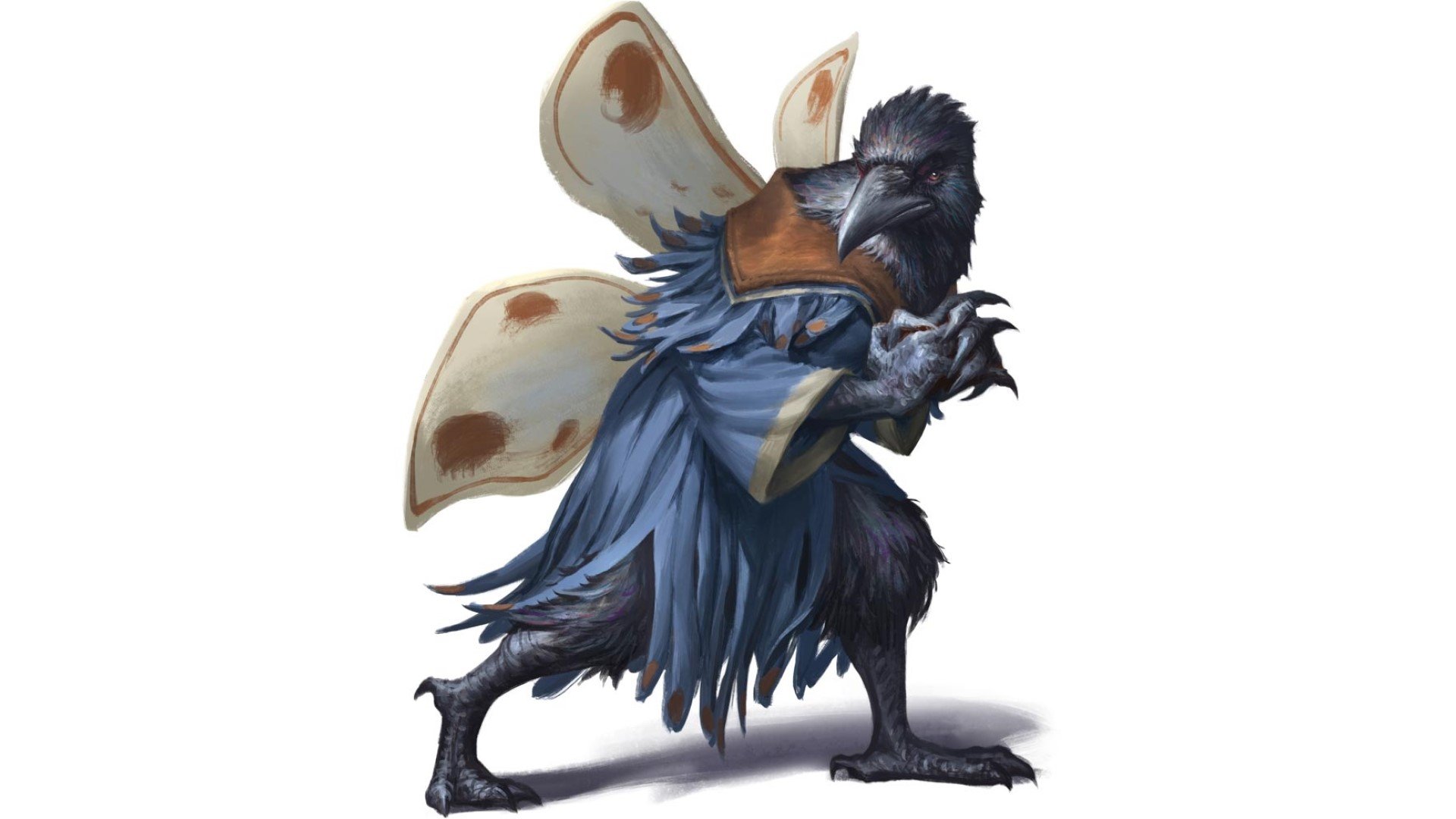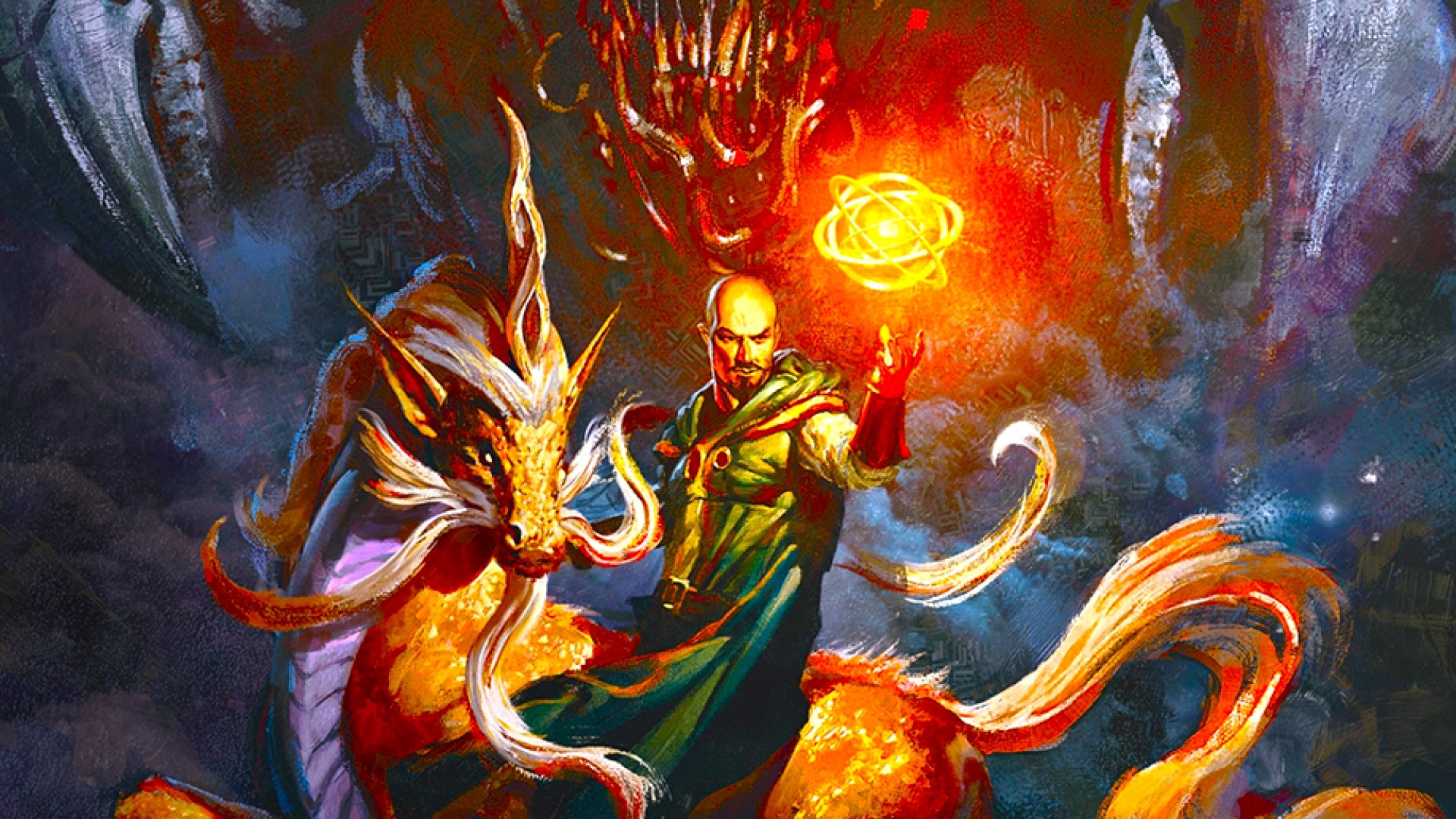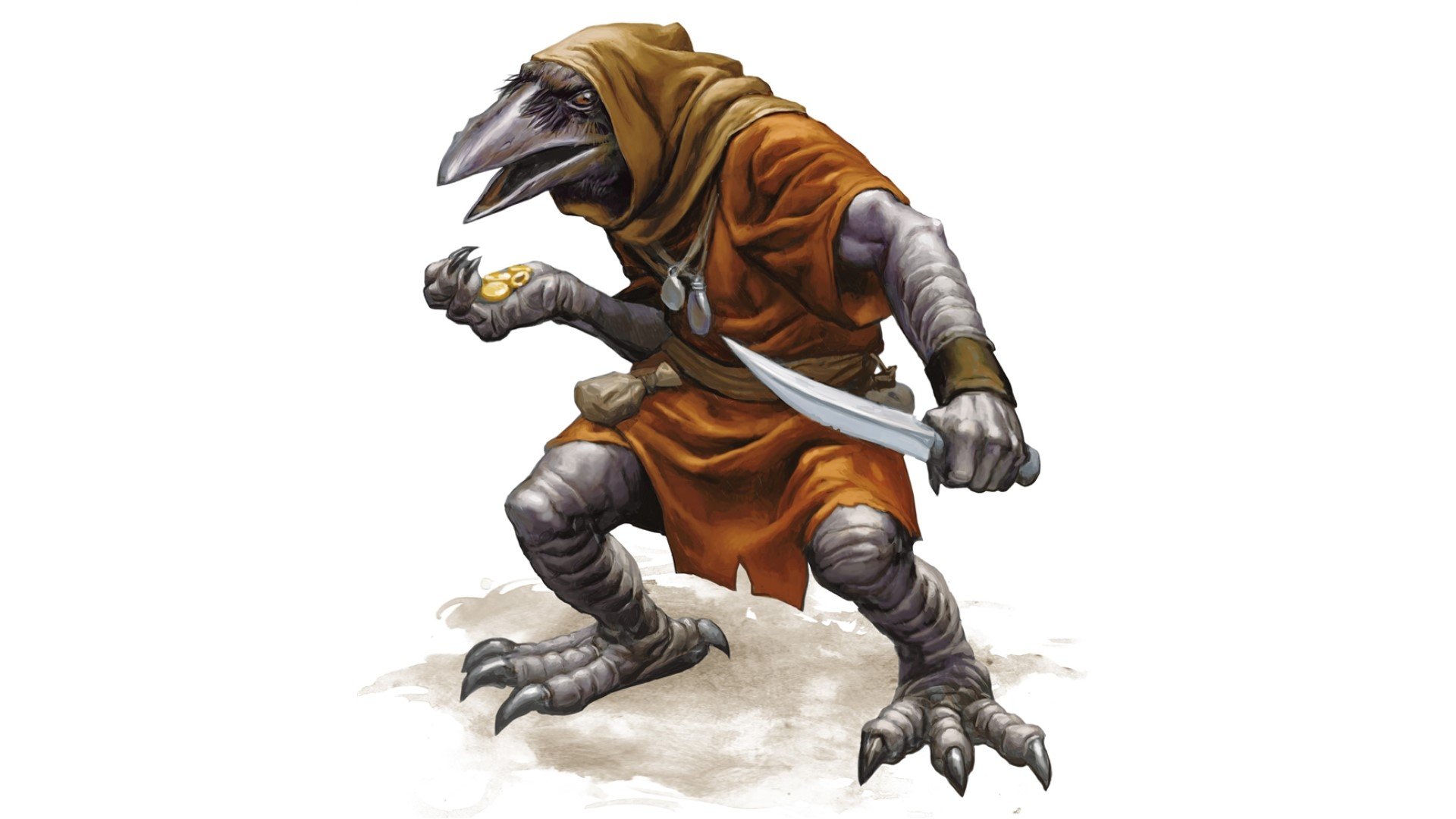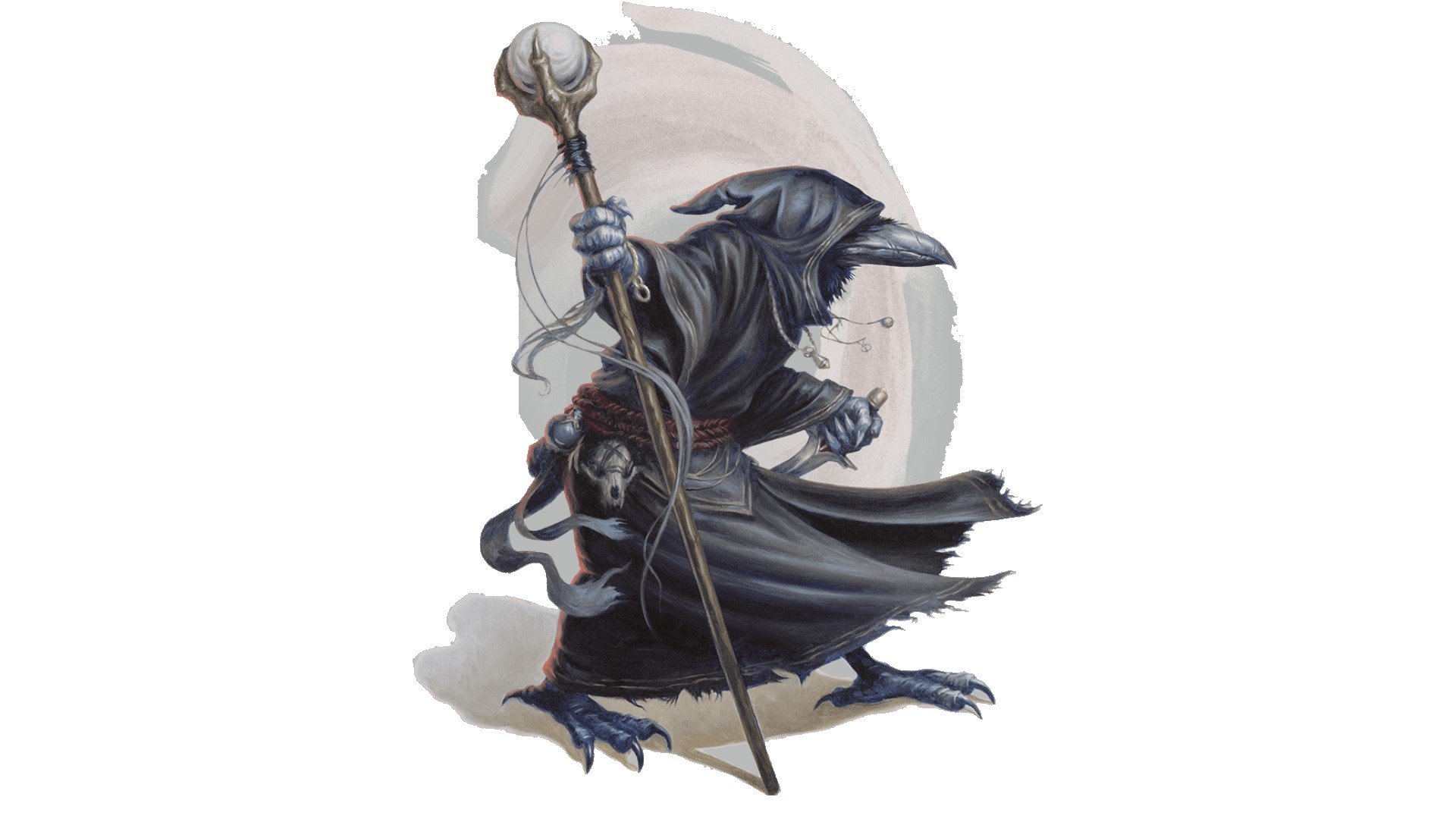DnD’s raven-like Kenku 5e race embodies everything you’d associate with Edgar Allan Poe’s favourite bird. They’ve got the corvid’s signature beak and glossy black feathers, and they’re blessed with a talent for mimicry. However, they’re also cursed to wander the earth on foot – the raven’s gift for flight still eludes them.
Depending on which DnD books you’ve been reading, the Kenku has plenty of other curses too. Some sources say the gods stripped the DnD Kenku 5e race of its creativity, and some versions of these feathered adventurers have lost their ability to speak. These Kenku can only communicate by mimicking sounds they’ve heard (insert ‘Quoth the Raven’ joke here).
The most up-to-date D&D Kenku source, Monsters of the Multiverse, jokes there are as many Kenku origin stories as there are Kenku. This means your next Kenku character can be anyone you want them to be.
Whether you’re creating a character or just looking to learn more, here are all the key details on the DnD Kenku 5e race:
DnD Kenku 5e names
Kenku can perfectly recreate any sound they hear, and this isn’t limited to known languages. If a Kenku wants to sound like a babbling brook or a wailing baby, it can easily do so. Because of this, Kenku names are based on a wide variety of sounds. Non-Kenku often call their feathery friends by a name that describes the sound made – for example, Whistler, Crasher, or even Door Slam.
Kenku names aren’t categorised by gender. Instead, there are three broad umbrellas a name can fall under, and these are based around a Kenku’s occupation.
Kenku fighters and thugs are named after common combat sounds – weapons clanging against armour, an arrow leaving a bow, or the roar of a battlefield. Kenku criminals are typically named after animal noises because they use these to send messages without being detected. Examples include Barker, Hooter, or Rat Scratch. Meanwhile, a Kenku who pursues a particular craft or career will be named after a sound commonly associated with their work. A Kenku bartender might be named after the clink of glasses or the chatter of drinkers.
DnD Kenku 5e stats
The more fantastical DnD races saw a big overhaul with the release of Monsters of the Multiverse. Because of this, there are several different versions of the Kenku’s 5e stats – Monsters of the Multiverse may be the most up-to-date, but players using Explorer’s Guide to Wildemount or the now-legacy Volo’s Guide to Monsters may create Kenku’s that look a little different.
Here are the most recent Kenku 5e stats:
| Ability score increase | +1 and +2 any two skills, or +1 any three |
| Size | Medium or Small |
| Speed | 30ft |
| Features | Expert Duplication, Kenku Recall, Mimicry |
Expert Duplication means a Kenku gets advantage on ability checks when creating a duplicate of a piece of writing or craftwork. Kenku Recall gives you proficiency in two skills of your choice, and you can give yourself advantage on checks for any skill you’re proficient in. This can be done a number of times equal to your proficiency bonus, with these replenished once you’ve completed a long rest.
Mimicry means Kenkus can recreate any sounds they hear, and creatures who hear the mimicked sounds must pass an Insight check to recognise it as a fake. Interestingly, in older sourcebooks, Kenkus could only communicate through mimicking sounds. This added an extra challenge to roleplay – one that some players found fascinating, but others found frustrating.
This isn’t the only difference between current and legacy Kenku builds. The original Kenku ability scores were +2 Dexterity and +1 Wisdom, and Kenkus were exclusively of Medium size. These Kenkus could also choose two proficiencies, but only from a limited list – Acrobatics, Deception, Stealth, and Sleight of Hand.
DnD Kenku 5e classes
The current rules for Kenku make them a viable choice when playing any of the DnD classes. Additional proficiencies, plus gaining advantage on any skill checks you’re proficient in, means this is a race that provides an all-around buff. There’s no real bad choice here, but we’ve dissected a few of our absolute favourites.
Even though older Kenku lore says the raven race was once stripped of its creative abilities, we’d choose the Bard as our top choice for a Kenku class. The Bard class is a jack of all trades (one of their traits is literally named after the phrase), so a wide range of proficiencies helps them play a supporting role in combat and get plenty of roleplay in outside of fights. Plus, with Expertise able to double a Bard’s proficiency bonuses, Kenku Recall only adds to a Bard’s success rate.
The Rogue class is also one of our top choices – whether you’re playing with current or legacy rules. The Kenku’s abilities make the most sense for Rogues from a roleplay perspective, and the old Kenku’s reliance on Dexterity plays well with this class.
Kenkus can also make strong martial builds. Rangers and Monks are viable with all versions of the Kenku, and they’ll both benefit from a few extra proficiencies. A Barbarian or a Fighter might not have much use for duplicating objects, but the power of an advantage on physical ability rolls can’t be underestimated.
Source: Wargamer







